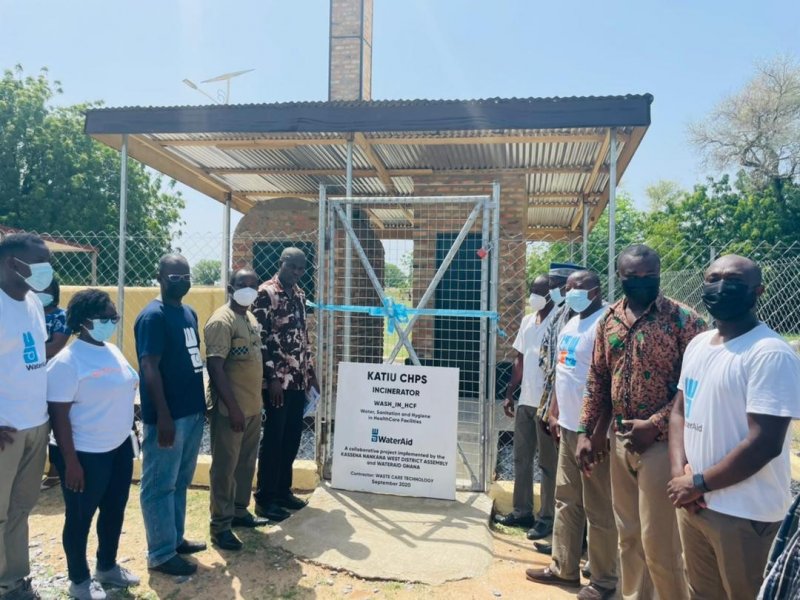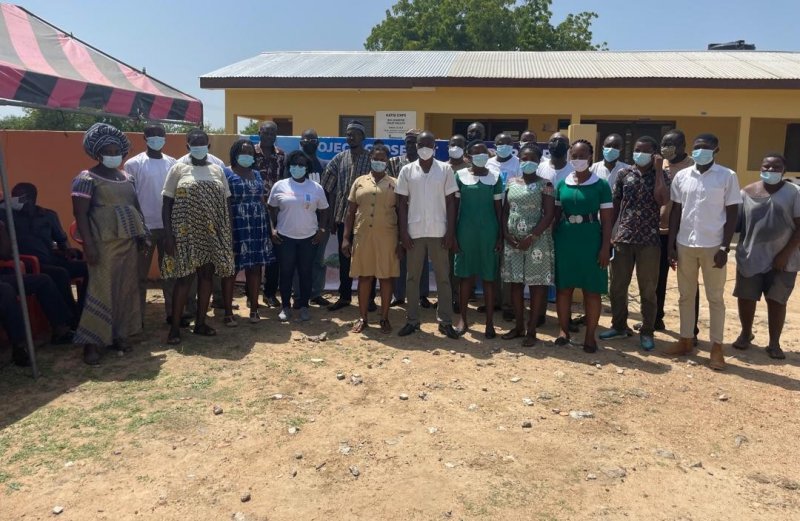Katiu (U/E), June 6, GNA – Water Aid Ghana, a Non- Governmental Organization, has improved access to safe and sustainable Water, Sanitation and Hygiene (WASH) facilities in two Community-based Health Planning Services (CHPS) Compounds in two districts of the Upper East Region.



It achieved this, through the construction of solar powered mechanized water systems, double chamber incinerators, water-closets and bio-digester toilet facilities at the maternity wards and out-patient departments of these facilities.
The initiative which was part of the implementation of its Inclusive WASH in Health Facilities programme was funded by Zochonis Charitable Trust, a United Kingdom based organization and benefitted Katiu CHPS Compound in the Kassena-Nankana West District and Apatanga CHPS Compound in the Bongo District.
At the project closing ceremony held at Katiu, Mr George Yorke, the Head of Policy, Advocacy and Campaign, Water Aid Ghana, said the project which begun in 2019, worked to improve access to safe WASH facilities in health care institutions in the beneficiary areas.
This, he said, was done through integrated service delivery approach where WASH facilities were provided while improving upon existing ones such as washrooms.
Mr Yorke said the vision of Water Aid Ghana was to ensure that deprived health facilities and communities had access to safe and sustainable WASH facilities to promote quality health care delivery.
He said the move was to contribute to the country’s efforts at achieving the Universal Health Coverage and the Sustainable Development Goals especially goal three which places emphasis on quality health care for all by 2030.
Mr Jesse Coffie Danku, the Head of Programmes, Water Aid Ghana, said access to WASH facilities in health care institutions and communities was key to building resilient human resource base for accelerated national development.
Mr Danku said the emergence of the coronavirus pandemic had further solidify the importance of WASH facilities as most of the health care institutions in the country lacked WASH facilities which did not enable staff and clients to properly observe the protocols.

The Head of Programme therefore called on government through the various Metropolitan, Municipal and District Assemblies and other stakeholders to ensure that health care institutions meet the World Health Organization’s standard by incorporating fully, WASH facilities in the construction of health care facilities.
Mr Hypolite Yeleduor, the Kassena-Nankana West District Director of Ghana Health Service, said WASH coverage in health care institutions in the district was about 67 per cent and the work of Water Aid Ghana over the years had contributed about 37 per cent coverage.
He lauded the efforts of Water Aid Ghana and its sponsors for the project which he said would greatly improve service delivery.
Mr Yeleduor said his outfit had prioritized the provision of WASH facilities in health care institutions in their strategic development plan.
Alhaji Ibrahim Habila, the Deputy Director, Upper East Regional Coordinating Council who spoke on behalf of Mr Stephen Yakubu, the Regional Minister, appealed to health personnel to make maximum use of the facilities while putting in a maintenance strategy to keep them secured.
He appealed to Water Aid Ghana to continue to support the deprived districts in the region and said that would complement government’s efforts.
GNA
GNA